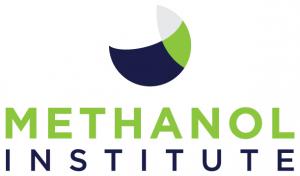Consumption of Industrial Products does not Ward Off COVID-19
Rumors that consumption of methanol can ward off the COVID-19 virus are unfounded and untrue.
SINGAPORE, March 12, 2020 /EINPresswire.com/ -- The Methanol Institute (MI) and its members are saddened by the news that individuals in Iran have fallen victim to poisoning after consuming industrial alcohol in a bid to ward off the corona virus (COVID-19). As the Iranian people and government work to contain the outbreak of the COVID-19 virus, we would like to extend our sincerest condolences to the families of victims who have succumbed to the virus as well as those who have been poisoned after mistakenly thinking that drinking an industrial product, methanol, could effectively prevent them from contracting COVID-19.Methanol, an industrial alcohol, is a chemical building block for hundreds of products that touch our daily lives, from paints and plastics to solvents and resins. Methanol is also used as a fuel and energy source in several countries. Like all global industrial chemicals and fuels, methanol must be used and handled with care. It is not meant for human consumption as that could lead to adverse effects to the human body.
It is paramount that the public maintains calm during this period and not spread misinformation that could lead to more harm than good. Rumors that consumption of methanol can ward off the COVID-19 virus are unfounded and untrue. MI strongly advises against the consumption of industrial products which are meant for use solely in an industrial setting. Instead, the public should take heed of public health advisories issued by credible sources such as the Ministry of Health or other government bodies. Observing good public hygiene such as the regular washing of hands with soap, using a tissue paper when coughing or sneezing, as well as keeping your surroundings clean are good practices to observe during this period.
MI and the methanol industry actively work with stakeholders globally to tackle the issue of poisoning outbreaks due to the consumption of illicit alcohols. In doing so, MI develops and administers formal initiatives with governments, NGOs, as well as other organizations to raise awareness and educate high-risk communities on the consequences of drinking illicit alcohols that have been tainted with industrial methanol. MI also supports the development of innovative technology that help public health institutions diagnose methanol poisoning in a timely and cost-effective manner to reduce the strain on resources during a major outbreak.
For more information about global efforts and resources to protect consumers from poisoning through illegal alcohol beverages, please visit the MI website
About the Methanol Institute
The Methanol Institute (MI) serves as the global trade association for one of the world's most vibrant and innovative industries. Founded in 1989, MI represents methanol producers, distributors, and technology providers in every corner of the globe – from our headquarters in Singapore and regional offices in Washington, D.C., Brussels, and Beijing. MI and its members dedicate significant resources to developing best practices for the safe handling, transportation, and use of methanol. www.methanol.org
Methanol is a liquid chemical that can be derived from natural gas, coal, sustainable biomass, municipal solid waste, and captured carbon dioxide (CO2). Global methanol demand in 2019 was approximately 86 million metric tons (MMT). Methanol is increasingly being used as a fuel in cook stoves, industrial boilers and marine applications, due to its clean burning properties.
Tim Chan Manager, Government Relations and Business Developm
Methanol Institute
+65 9776 3530
email us here
Legal Disclaimer:
EIN Presswire provides this news content "as is" without warranty of any kind. We do not accept any responsibility or liability for the accuracy, content, images, videos, licenses, completeness, legality, or reliability of the information contained in this article. If you have any complaints or copyright issues related to this article, kindly contact the author above.


